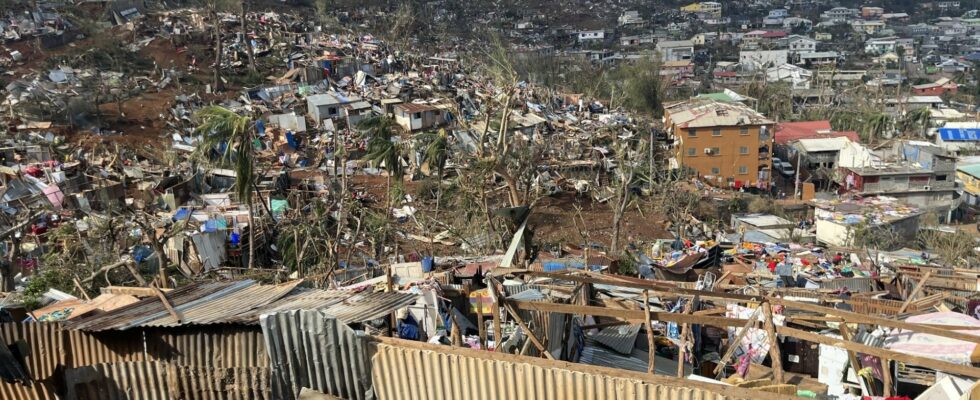This is the first legislative act of François Bayrou’s government: the emergency bill for Mayotte was adopted on the night of Tuesday January 14 to Wednesday January 15 in committee at the National Assembly, despite numerous criticisms from oppositions, who consider it insufficient. The text aims to accelerate the rules and procedures in town planning to allow the rapid reconstruction of the archipelago devastated by Cyclone Chido in mid-December. It also contains more temporary social measures.
During the debates that began Monday afternoon, as tropical storm Dikeledi moved away, Overseas Minister Manuel Valls, who on this occasion made his return to the parliamentary cauldron, stressed that the text was only a “first response” to the multifaceted crisis hitting the Indian Ocean archipelago.
The rapporteur of the text, the MP for Mayotte Estelle Youssouffa (Liot), attacked in her introductory remarks a text “without real ambition”, developed “without consultation with local elected officials or parliamentarians”, and which remains “largely silent on essential subjects such as immigration. The second MP for Mayotte, Anchya Bamana (RN), said she was “angry” at a bill “which misses the point”, by not making it possible to fight against “migrant overwhelm”.
Several deputies also criticized the government for trying to have measures to combat slums adopted by amendment, exposing itself to the risk of inadmissibility. These amendments were effectively rejected, because they were deemed to have no direct or indirect link with the text.
An exhaustive assessment requested in one month
Manuel Valls recalled that another draft “program law” containing longer-term measures was planned for March. A bill aimed at restricting land rights in Mayotte will also be examined on February 6, providing for extending the duration of residence of parents for their children’s access to French nationality.
An amendment from former Minister of the Environment Dominique Voynet was adopted, requesting that the government submit within one month after the promulgation of the law an exhaustive assessment of the disaster, particularly on the human level. The government supported it, Manuel Valls emphasizing that the State had “nothing to hide”, and regretting the “accusations” made during the Prime Minister’s general policy declaration by the speaker of the National Rally. MP Jean-Philippe Tanguy vehemently accused the government of “lying about everything in Mayotte”, and in particular “about the seriousness of the human toll” from Cyclone Chido.
The text must be examined in the hemicycle on January 20. The Senate plans to take it up on February 3.
